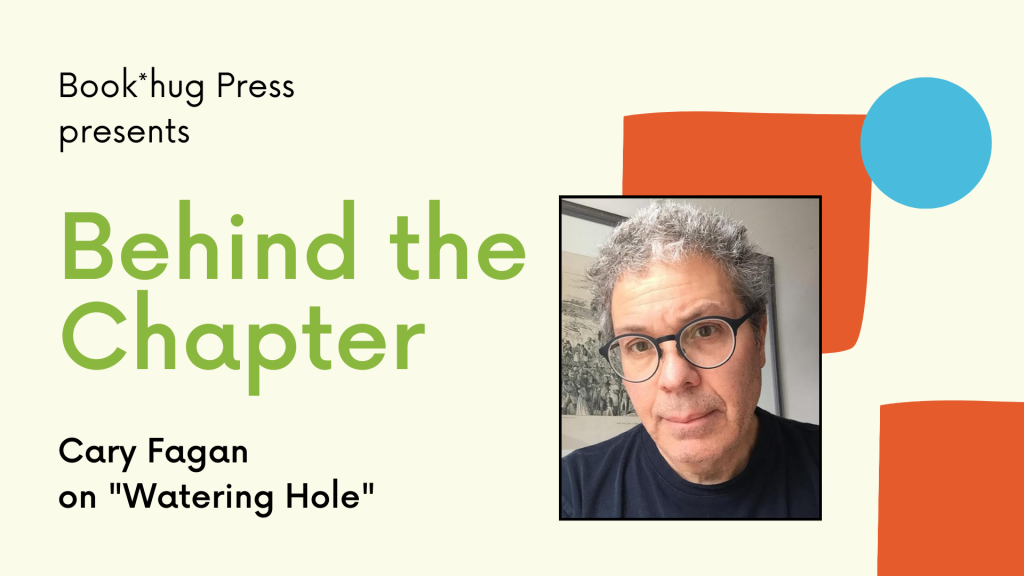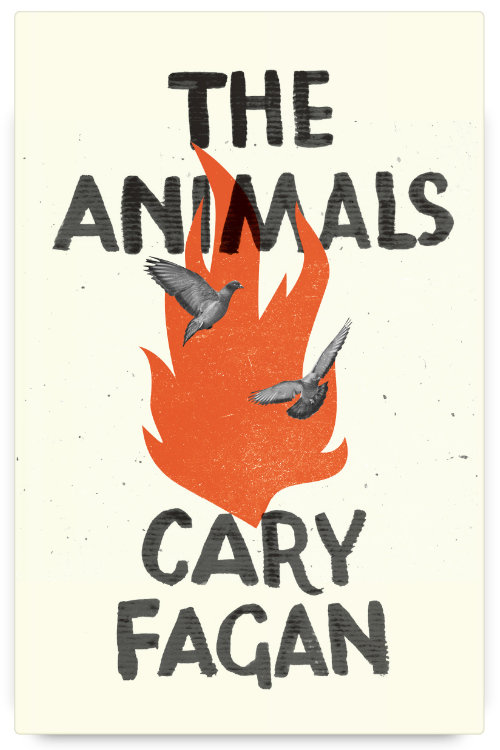Behind the Chapter with Cary Fagan

Today, we invite Cary Fagan to the blog to share thoughts on a chapter from his new novel, The Animals! Read on for insights on a moment in the book where the protagonist Dorn takes time to reflect— taking him out of—and eventually returning him to—the plot. Off to Cary!
When I was asked to write about a single chapter in The Animals,” the one that immediately came to mind was Chapter 8, entitled “Watering Hole.” For one thing, it’s the shortest in the book—a mere two pages. For another, nothing happens. It simply gives Dorn a chance to think about what is going on. More precisely, it gives him a chance to ponder his discovery that people are bringing wild animals into their homes under the auspices of a government program.
I teach writing in the Continuing Studies department of the University of Toronto and often see manuscripts like this: a character gets into the bath and thinks about her life, or a character bakes a cake and ponders the failure of his marriage. In other words, the action—bathing, baking, etc.—is a red herring, an excuse for the character’s thoughts. So I decided that rather than create some empty situation I would have a chapter whose purpose is not hidden. There’s no little sleight-of-hand business going on to make the reader forget that nothing is actually happening. In this chapter, Dorn thinks. That’s it.
Dorn is not a cypher for the author. He’s a reasonably clever guy and I wanted his musings to be his own. He opens the chapter with a thought experiment: “If Dorn were to bring a wild animal into his house, what sort would it be? A jackrabbit, perhaps, or a mildly venomous snake?” From there he tries to understand what is motivating his fellow villagers. Some kind of romanticism or a desire to tame one’s own inner wildness? He considers what it means to “possess” a living thing and if possession is even the point.
My hope was that readers would consider their own thoughts and questions while reading Dorn’s. And would weigh how far or close Dorn seemed to them to the truth. But these are just speculations and another sign that Dorn is no fool is his scepticism of his own ability to understand yet what is going on. (We are, after all, less than half-way through the book.). And so he ends the chapter this way:
“Bullshit,” Dorn said aloud to himself, going to the fridge for another beer. “Or possibly bullshit.”
Sceptical, yes, but Dorn also has a tendency to undermine himself and he does so here yet again. And that’s it, the whole chapter. Only while we are at it, there’s something else to notice, just a small thing. It’s that going to the “fridge for another beer.” It turns out that Dorn is doing something after all. Not taking a bath or baking a cake, but drinking. The chapter reverses the usual way of things by not setting up the scene at the beginning. Instead, it’s as if the camera had been aimed at the sky during a voiceover and suddenly tilts downwards and goes through the window to show what Dorn is actually doing. It brings us back to earth so we can get back to the story.

Cary Fagan is the author of eight previous novels and five books of short stories, including The Student, Great Adventures for the Faint of Heart, and A Bird’s Eye. He has been nominated for the Scotiabank Giller Prize, the Writers’ Trust Fiction Award, the Governor General’s Literary Award for Fiction, and has won the Toronto Book Award and the Canadian Jewish Book Award for Fiction. He is also an acclaimed writer of books for children, having won the Marilyn Baillie Picture Book Award, the IODE Jean Throop Book Award, a Mr. Christie Silver Medal, the Joan Betty Stuchner—Oy Vey!—Funniest Children’s Book Award, and the Vicky Metcalf Award for Literature for Young People. Fagan’s work has been translated into French, Italian, German, Dutch, Spanish, Catalan, Turkish, Russian, Polish, Chinese, Korean and Persian. He still lives in his hometown of Toronto.

